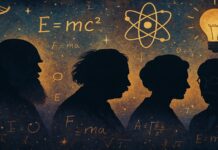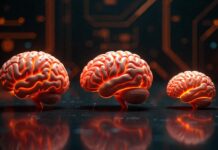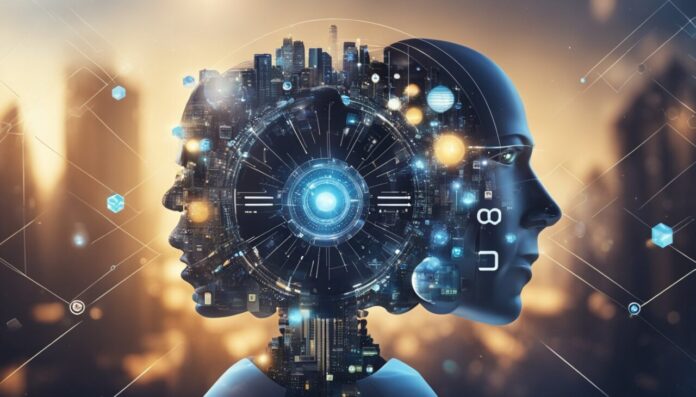
Artificial Intelligence is developing so fast that it is becoming rather hard to keep pace. Every day we’re witnessing a development of new tool, new possibilities and new ideas of what could AI do.
This ultra-fast pace began a year ago when OpenAI released its first tool, ChatGPT. Since then, we’ve witnessed numerous tools, applications, and progressions, giving the impression that the development of AI has reached an almost parabolic trajectory.
A lesser-known yet provable reality (and a fact) is that all advancements in information technology adhere to a similar growth curve. They initiate at a gradual pace, gather momentum, and eventually surge forward like a rocket (exponential/parabolic growth). Perhaps we're just now at the beginning of this exponential curve.
So, in that sense, let’s try to imagine, or predict rather, what will happen in 2025 with AI development and its impact on various aspects of our lives and different industries worldwide.
One thing is certain, and that is there will be many changes.
As mentioned, it appears we are only at the initial stages of a parabolic curve of transformations, and the coming year is expected to bring even more significant changes.
And so, as we move closer to 2025, AI is expected to play an even more significant role in our lives. Experts predict that AI will change the way we live, work, and interact with each other.
In this article, we will try to predict the top changes that will happen because of AI development.
Related:
2025: Beyond Natural Language Processing
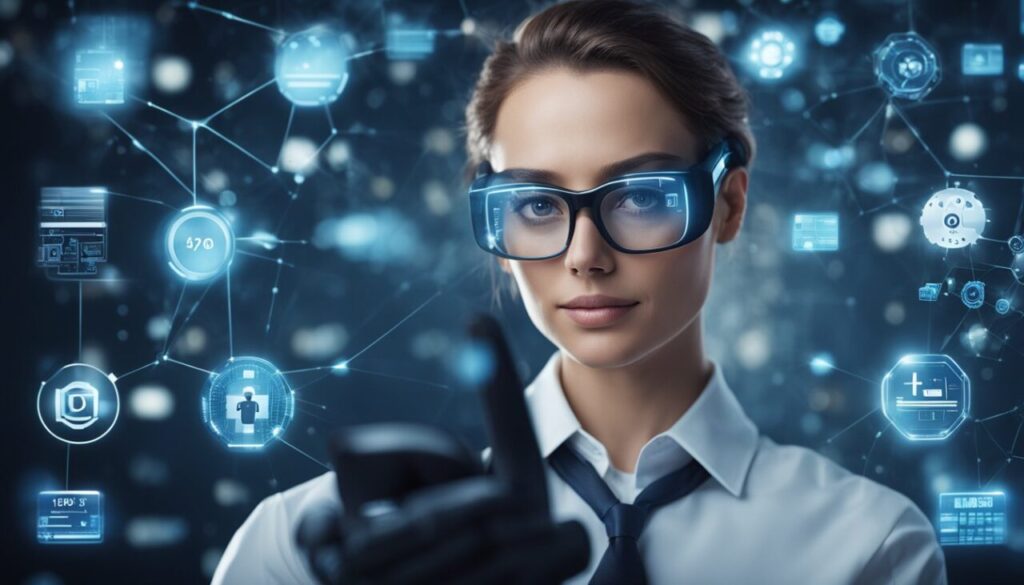
In 2024, futurists predict that natural language processing will continue to be a rapidly evolving field in AI. Natural Language Processing (NLP) is the branch of AI that enables computers to understand, interpret, and generate human language in a way that is similar to how humans communicate with each other.
With the help of NLP, AI-powered chatbots, virtual assistants, and other conversational interfaces will become more sophisticated and capable of handling more complex tasks.
One of the major advancements in NLP that is expected in 2025 is the development of even more accurate and efficient language models. These models are designed to understand the nuances of human language and generate responses that are more natural and human-like.
One example of such a model (and most famous one) is GPT-4 (GPT-4o), the successor to the highly successful GPT-3.5 language model. GPT-5 is expected to have significantly greater language processing capabilities and do much much more.
New AI models will be able to generate much more meaningful responses in all possible formats (text, audio, video).
Currently, AI models excel in text and picture creation. And some in video also. You simply describe what you’d like to know or see, and AI produces results in a matter of seconds.
What we can expect in 2025, video creation will become extremely amazing (and scary in some way). We’re already witnessing numerous deep-fake videos that are almost indistinguishable from reality.
In 2025, we will see much more of that, and it’s not impossible that entire movies will be created by AI, featuring (virtual) actors familiar to us.
In our article ‘World in 2050,’ we explored the possibility of an on-demand movie generation featuring synthetic actors and elements. A variation of this scenario is expected to unfold in 2025.
While existing AI tools can already generate videos of moderate quality, there is anticipation for a significant leap in advancement in the coming year.
And so, if we extrapolate these advancements far enough into the future, we could easily imagine that everything related to any kind of content creation will be handled by AI.
Nonetheless, let’s try to keep our feet on the ground and predict various changes in different industries that will occur in 2025 due to rapid AI development.
Let’s start with healthcare.
Expansion of AI in Healthcare
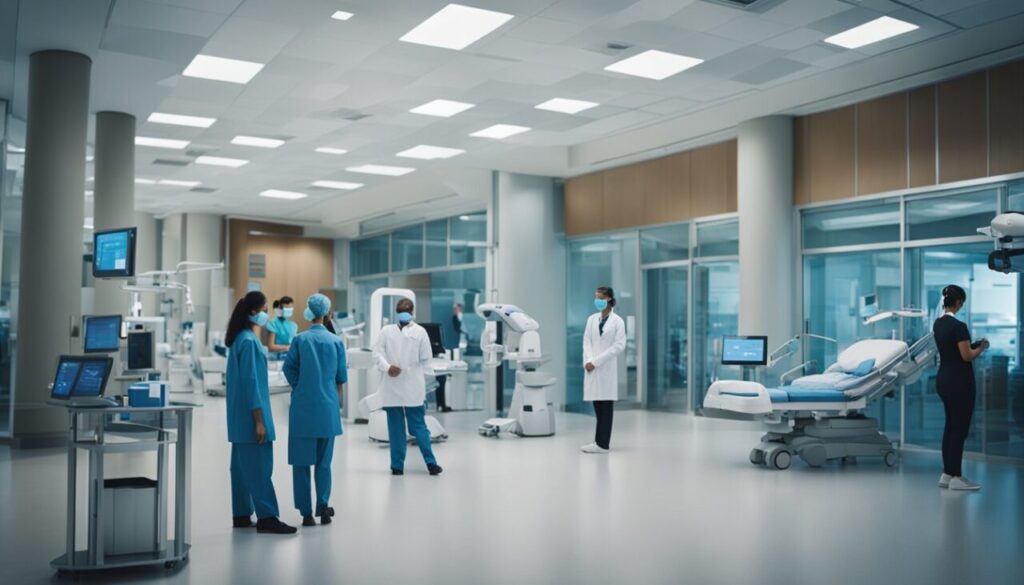
Artificial Intelligence (AI) is already in some cases revolutionizing healthcare by transforming the way medical professionals diagnose and treat patients.
AI is expected to have a significant impact on the healthcare industry in 2025, with the global AI in healthcare market size estimated to reach USD 45.2 billion by 2026, growing at a CAGR of 44.9% from 2021 to 2026.
And so, by our opinion, AI in 2025 will mostly help in following way:
Disease Prediction
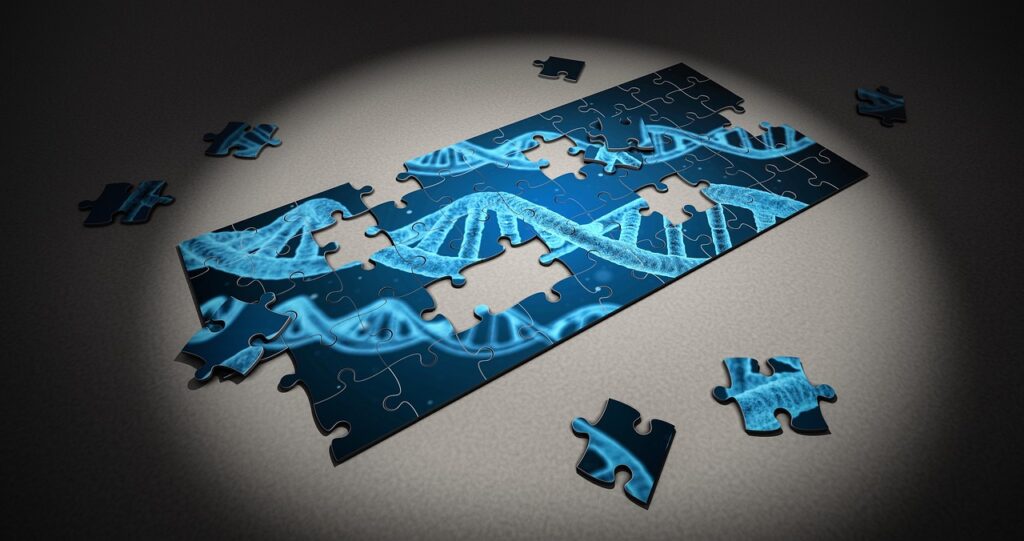
AI (in modern institutions and developed countries) will be able to predict and diagnose diseases with greater accuracy and speed than traditional methods.
By analyzing large amounts of data, AI algorithms can already identify patterns that may not be visible to the human eye.
For example, AI will be able to help in predicting the likelihood of a patient developing a specific disease based on their medical history, lifestyle, and genetic makeup.
This will then help medical professionals take preventive measures or recommend early treatment to improve patient outcomes.
Today (in 2024), many people already wear various smart devices that measure different health, activity, and body parameters. In 2025, even more people will wear these devices, and they will be more interconnected and linked to personalized AI cloud services, which, in turn, will provide relevant health recommendations.
For example, let’s consider a 40-year-old person, whom we’ll call Joe.
Joe runs every day, eats healthy, and uses different smart wearables that gather a wide range of data, including heart rate, blood pressure, glucose levels, and many other parameters. While all of this technology is already available and has been for many years, in 2025, we can expect that companies will offer various AI services to analyze all of Joe’s data. Based on this comprehensive analysis, the AI service may conclude that something is perhaps wrong with Joe.
Namely, each individual parameter may appear healthy for Joe, but with the immense power of AI data analytics, this service might identify a specific disease or gene mutation that Joe is not even aware of.
While this may seem too futuristic, it could easily become a reality in 2025.
In conclusion, AI is expected to have a significant impact on the healthcare industry in 2025, with the expansion of AI in healthcare expected to improve disease prediction and personalized medicine.
However, the use of AI in healthcare is still in its early stages, but it has the potential to completely revolutionize the way medical professionals diagnose and treat patients.
The year 2025 will certainly be one of the first stepping stones in this direction.
Okay, so we’ve briefly covered health industry.
Let’s see what will happen in other industries.
AI in Autonomous Vehicles
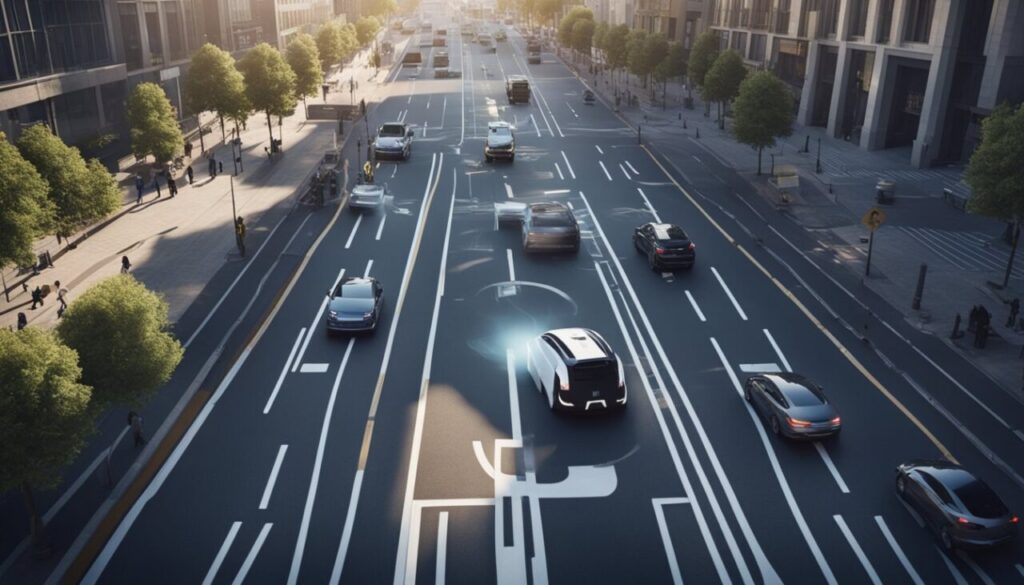
Artificial Intelligence has already made significant contributions to the development of autonomous vehicles, and in 2025, it is expected to make even more significant moves.
There will be more AI-powered autonomous vehicles and they will be smarter and safer.
However, not only will vehicles become smarter, but AI will also be used more and more in traffic analysis and management.
AI Traffic Management and Safety

One of the most significant impacts of AI-powered autonomous vehicles will be in traffic management. AI algorithms can analyze data from sensors, cameras, and other sources to optimize traffic flow, reduce congestion, and improve travel times and there will be much more of those sensors, especially in the developed world.
AI-powered autonomous vehicles are also expected to make significant improvements in road safety. With advanced sensors and algorithms, autonomous vehicles will be able to detect and respond to potential hazards more quickly and accurately than human drivers.
This could significantly reduce the number of accidents on the road, saving lives and reducing the financial cost of accidents.
As mentioned, AI algorithms can already analyze data from sensors and cameras to identify unsafe driving behaviors. In 2025 new cars will provide real time feedback to drivers, helping them improve their driving habits and reduce the risk of accidents.
However, it’s important to note that this advancement in traffic management enhanced by AI will not occur worldwide; only a few of the most advanced cities in the world will experience its implementation.
And so, we’ll have AI probably enhancing the transportation and health industries in some countries.
What else can we expect in 2025?
Well, certainly various implementations of AI in education.
AI in Education
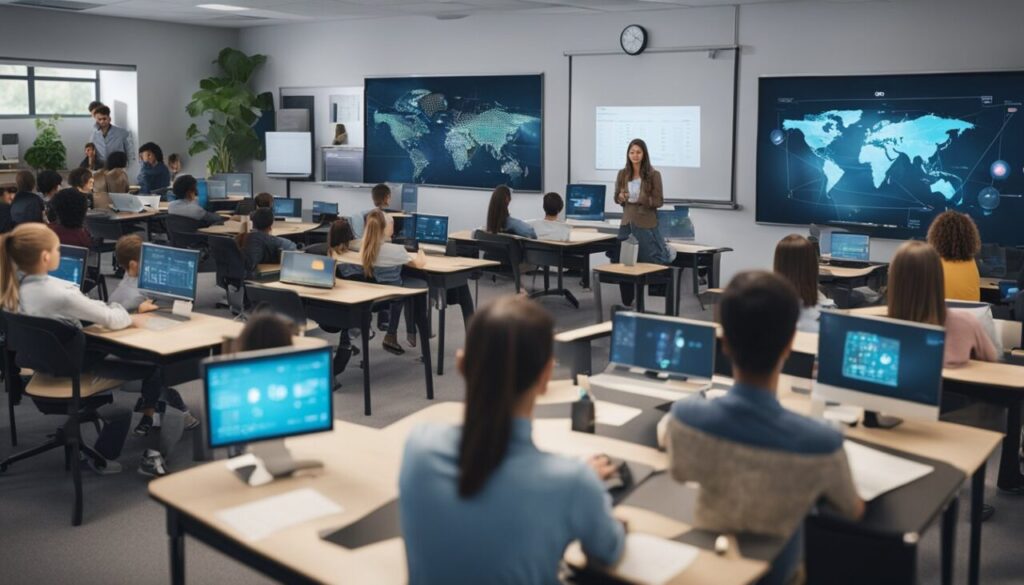
Artificial Intelligence is already making significant strides in the education sector, with both positive and negative impacts. Many students are utilizing AI to write papers or solve complex equations and homework. For example, students now have the ability to take a picture of a specific equation or problem, and AI can provide a solution in a matter of seconds.
This utilization of AI in education will continue into 2025 and become even more pronounced. While students will have knowledge of almost the entire world and its history at their fingertips (thanks to smartphones), teachers will face significant challenges in maintaining the concentration of students.
Moreover, many young people will begin to challenge traditional models of education.
As we discussed in our article ‘History of Education System,’ education is not changing at the pace the world is changing. With almost all-knowing AI, standard models of education will need to change dramatically.
However, not everything is negative. In some cases, education will be greatly enhanced, for example, through customized learning paths.
In modern education institutions AI-powered learning platforms will be able to analyze student data, including their learning style, performance, and interests, to recommend personalized learning experiences.
This approach to education will help students to learn at their own pace and in a way that is most effective for them.
Additionally, AI will be used for some repetitive and administrative tasks. Namely, it is not hard to imagine that AI will be able to automatically scan and grade exams, tasks for which teachers currently spend a lot of their time.
However, this will only happen in the most advanced and richest education institutions.
Overall, AI has the potential to transform education, making it more personalized, efficient, and effective. However, it will also create significant challenges, especially with regards to student motivation, cheating on papers, and the overall purpose of standard education in the era of all-knowing AI systems.
And so, as we concluded, AI will have an impact on many industries.
This, in turn, will have a significant impact on the overall job market.
We’re already seeing how AI is replacing some jobs.
Will that continue in 2025?
AI and Job Market Changes
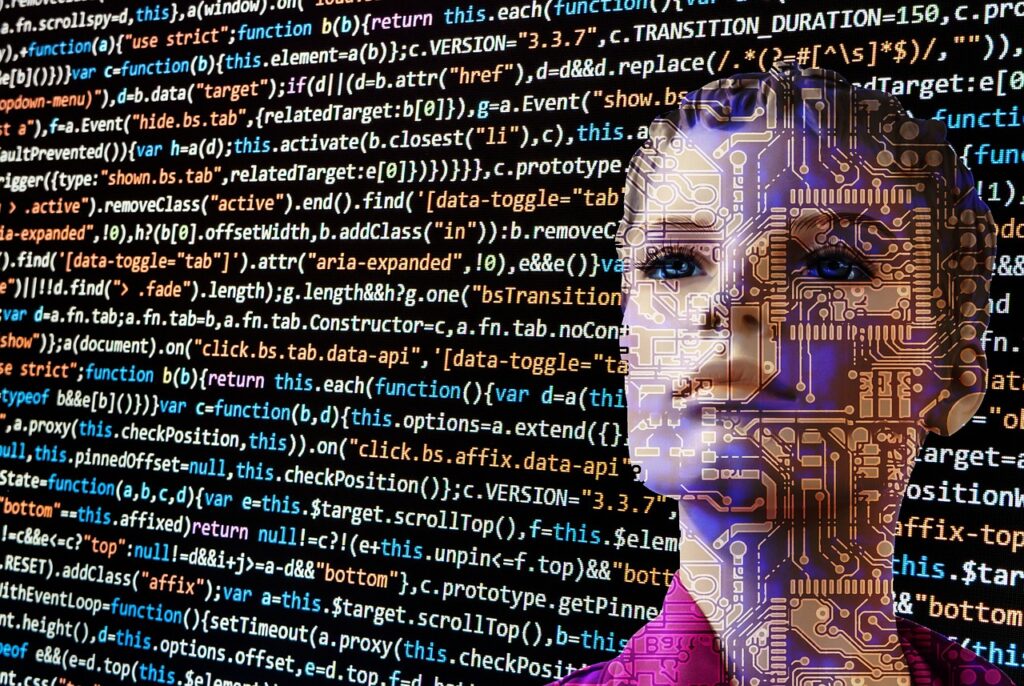
According to predictions made by World Economic Forum, “estimated 83 million jobs worldwide will be lost over the next five years because of AI, with 69 million jobs created — that leaves 14 million jobs that will cease to exist during that timeframe. Even the people who do retain their jobs will experience a massive shift in how they do their work.”
Additionally, World Economic Forum says “that 44% of workers’ core skills are expected to change in the next five years.”
So, the job market transformation is already well underway, and it is essential for both employers and employees to prepare for what’s to come.
There will be big challenges in 2025, but there will also be new job opportunities.
For example:
- AI Ethicist: This role involves ensuring that AI systems are developed and deployed in an ethical and responsible manner. AI Ethicists will be responsible for developing guidelines and policies that govern the use of AI systems.
- AI Prompter: An AI Prompter is tasked with writing smart AI prompts designed to yield optimal results customized for specific requirements.
- AI Trainer: This role involves training AI systems to recognize patterns and make decisions based on data. AI Trainers will be responsible for developing and maintaining the datasets that AI systems use to learn.
Many different AI tools will be used in businesses.
In conclusion, the job market transformation brought about by AI is inevitable.
Both employers and employees need to prepare for changes that are coming. However, given the swift pace of change, it remains a question of whether current predictions on job losses are actually too conservative.
Namely, if we achieve Artificial General Intelligence (AGI) in 2025, then job transformations will be significantly more pronounced.
If not in 2025, then surely in the next 10 years, society will need to rethink economic, career, and pension models, as AI will certainly be able to perform many tasks currently carried out by people.
Hereby, we don’t want to delve into Universal Basic Income, but with current technological advancements, UBI seems almost inevitable.
Probably, it will not happen in 2025 but is very likely by 2030.
Conclusion
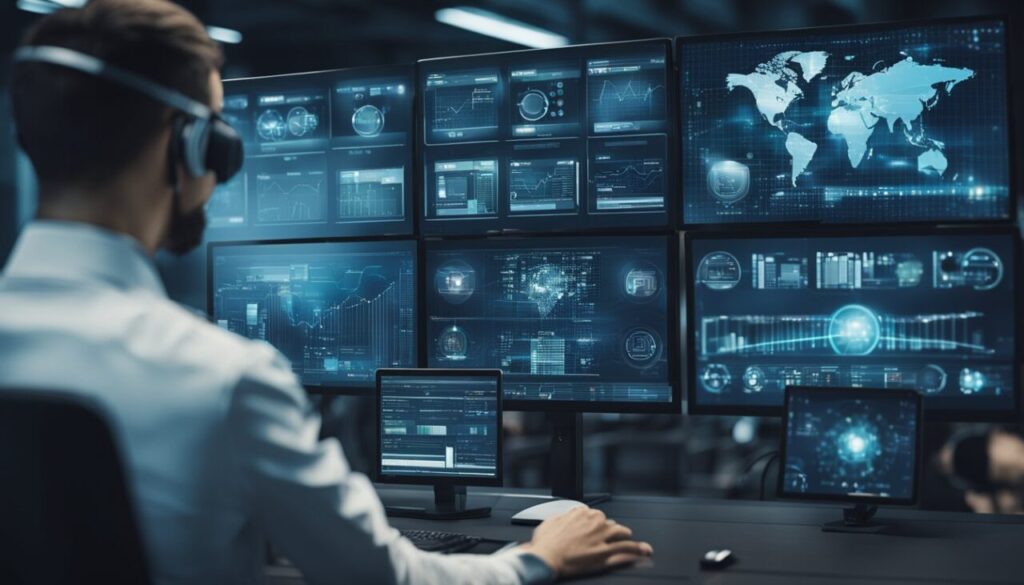
Artificial Intelligence will be responsible for many changes in 2025. Here, we only mentioned a few sectors and aspects of our society that, in our opinion, will be impacted the most.
The rate of changes really depends on the rate of advancements in AI. As we mentioned at the beginning of the article, it seems that we’re just at the beginning of the parabolic or exponential curve of technological advancement.
If we develop General Artificial Intelligence in 2025 (and we might), changes could be much more dramatic than described in this article. Combine that with advancements in quantum computing, and we could expect surprises in 2025 beyond our imagination.
One thing is certain: due to Artificial Intelligence, we will witness so many changes in our society that, as humans, we may not even fathom how the world will look in the next year, not to mention 10 years in the future.
Let’s just hope that changes will be mostly positive!
Note: If you enjoyed this article you might also like:






















